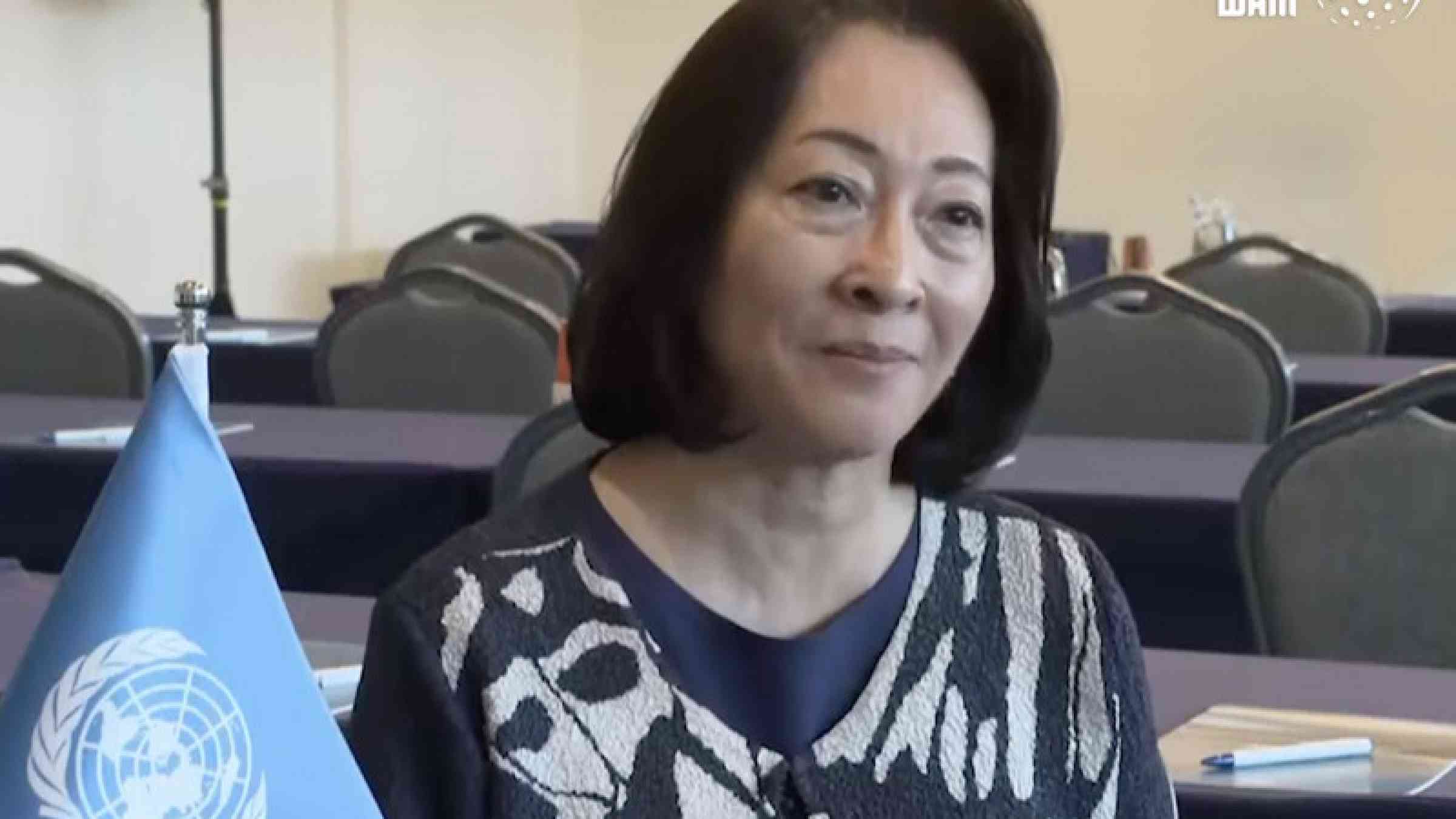UAE has potential to lead the way towards a disaster-resilient society, says UN official

ABU DHABI, 10th February, 2020 (WAM) -- The rapid urbanisation of Gulf countries in recent decades has highlighted the urgent need for urban risk management to be understood and put into practice, said a UN official.
Mami Mizutori, UN Special Representative of the Secretary-General for Disaster Risk Reduction, UNDRR, explained that this could be attained via building codes, land use regulation, natural resource management, adaptation to climate change and upgrading informal settlements.
Speaking to the Emirates News Agency, WAM, on the sidelines of the World Urban Forum, WUF10, Mizutori said that one of the biggest challenges in UAE, and the Middle East region, is to mitigate the risk of potential flooding and the associated damage to people, the environment and the economy.
WUF10 is currently running in the UAE capital, Abu Dhabi - the first Middle East city to host the Forum.
"The combination of a naturally hot and arid environment, rapid mass urbanisation, industrial development, a growing population and increased water consumption means that whilst water is a naturally limited supply; when rain comes, the risk of flooding is significant," she explained.
Yet, she added, "With its technological innovation and rapid development, the UAE has the potential to lead the way towards a disaster-resilient society."
More than 20,000 visitors from 160 countries are expected to gather at WUF10 until 13th February to assess the momentum for change and work towards a future full of sustainable cities populated with thriving communities.
Mizutori noted that that the UNDRR and the UAE are working closely to ensure that "we are engaging all stakeholders and partners from the government and the private sector, to avoid the creation of new disaster risk and economic losses."
She noted that UAE cities "have the potential to be role models for other cities in the region and internationally."
"The UAE is committed to implementing the global plan to reduce disaster losses [via] the Sendai Framework for Disaster Risk Reduction," which is an international document adopted by UN member states in 2015.
"The UNDRR’s regional office is supporting the UAE in the implementation effort working closely with UAE Sendai Framework focal points," she added.
Furthermore, the UNDRR is also supporting the UAE’s engagement in the 'Making Cities Resilient', a campaign launched by the United Nations International Strategy for Disaster Reduction, UNISDR, which works with cities and governments to improve their resilience to disasters by implementing risk reduction strategies.
"A very important requirement for disaster risk reduction is to measure your disaster losses in order to improve how you manage your disaster risk. UNDRR has been able to support the development of eleven national disaster loss databases."
Mizutori went to say that the humanitarian situation will keep getting worse "unless climate change, extreme weather events and the root causes of conflict are better addressed."
In 2020, nearly 168 million people will need humanitarian assistance and protection, representing one in about 45 people in the world and is the highest figure in decades. The United Nations and partner organisations, the official said, aim to assist nearly 109 million of the most vulnerable people, which will require funding of US$28.8 billion.
Moreover, over 17 million people were displaced in 2018 by disasters. Globally, at the start of 2019, some 821 million people were undernourished, including 113 million who suffered from acute hunger.
According to the UN, every US$1 invested in risk reduction and prevention can save up to $15 in post-disaster recovery, and every US$1 invested in making infrastructure disaster-resilient saves $4 in reconstruction. On average, annual disaster losses are equivalent to 22 percent of social expenditure in low-income countries.
It is also estimated that $6 trillion will have to be invested annually in infrastructure (urban, land-use and energy systems) by 2030. "This unprecedented drive towards urbanisation must be done in a manner which avoids the creation of disaster risk and seeks to reduce existing levels of risk," Mizutori said.
To address all these challenges, the UNDRR is working under the Sendai framework which is focusing on reducing the human impact of disasters by reducing the loss of life, the numbers of people affected, economic losses and damage to critical infrastructure including schools and health facilities.
"This can be done through improving multi-hazard early warning systems, planning at the national and local levels, and enhanced international cooperation through sharing experience and technology. We monitor progress in achieving these clearly defined targets.
"If we want to reduce risk then we also must be increasingly joined up in our approaches: working cross-sectors, between and within institutions, and ensuring harmony from policy through to activity," she explained.
"We acknowledge the UAE’s commitment and its role in initiating a paradigm shift in how we think, build and manage cities.
"We are also proud of the UAE's role and its humanitarian efforts, as a donor country, to rebuild cities affected by disasters and conflict," she concluded.